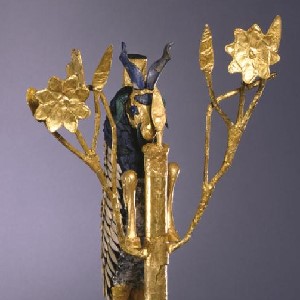Africa

BBC Ancient Egypt
Created with the help of academics, writers, and broadcasters, the BBC’s Egyptians webpage provides an excellent, easily digestible overview of Ancient Egypt through a series of essays and photo galleries.
The Griots of West Africa
Music has served as a language of memory in many cultures around the world. In West Africa, a Griot, or Jali, is part of a special, hereditary caste of individuals charged with knowing and retelling the stories and histories of the local people.
Primary Source: Educating Global Citizens
Such sources are indeed a superb addition to one’s class; unquestionably the materials on the Primary Source site can help enhance any class.
Ottoman History Podcast
The podcast could serve as a useful tool for scholars of the Ottoman Empire to stay up-to-date on scholarship, for professors in other areas to broaden their knowledge of the Ottoman Empire and establish relevant connections, and for students to engage in analysis of “texts” beyond the written word.
Digital Collections - Penn Museum
The digital collections of the Penn Museum are extensive and easily accessible through their online portal. Its written, visual, and audio sources invite many groups to explore world history by browsing its pieces.Age of Revolutions
Two features are particularly valuable for students and teachers: the thematic bibliography section and the ‘Teaching Revolutions’ section.Horace, “Cleopatra Ode”
Given Horace’s position in Emperor Augustus’ court, it is not surprising that his description of Cleopatra is wholly negative. This text relies on “sourcing” and an understanding of the author’s bias and motivation for a proper reading.
Antony’s Meeting with Cleopatra from “Life of Antony”
Cleopatra’s claim to the Egyptian throne very much resided in her relationship and alliance with Caesar. Upon his death in the Senate, Cleopatra had lost her guarantor. Antony’s arrival in Egypt provided a second opportunity for her to secure her throne through a powerful alliance.
Cleopatra’s Meeting with Caesar
Cassius Dio’s history of the meeting between Cleopatra and Julius Caesar uses powerful word-choice to develop a characterization of the female Egyptian ruler. After Pompey’s assassination, Cleopatra immediately develops a scheme to ally with Caesar.
Short Teaching Module: Cleopatra, Gender, Beauty and Power in Egypt and Rome
Our most important early sources on Cleopatra are Roman histories, which are problematic in their reliability. Cleopatra held the status as the “enemy” for Romans, which created a bias among Roman authors. Moreover, Rome’s patriarchal culture influenced writers’ views of a powerful female ruler.